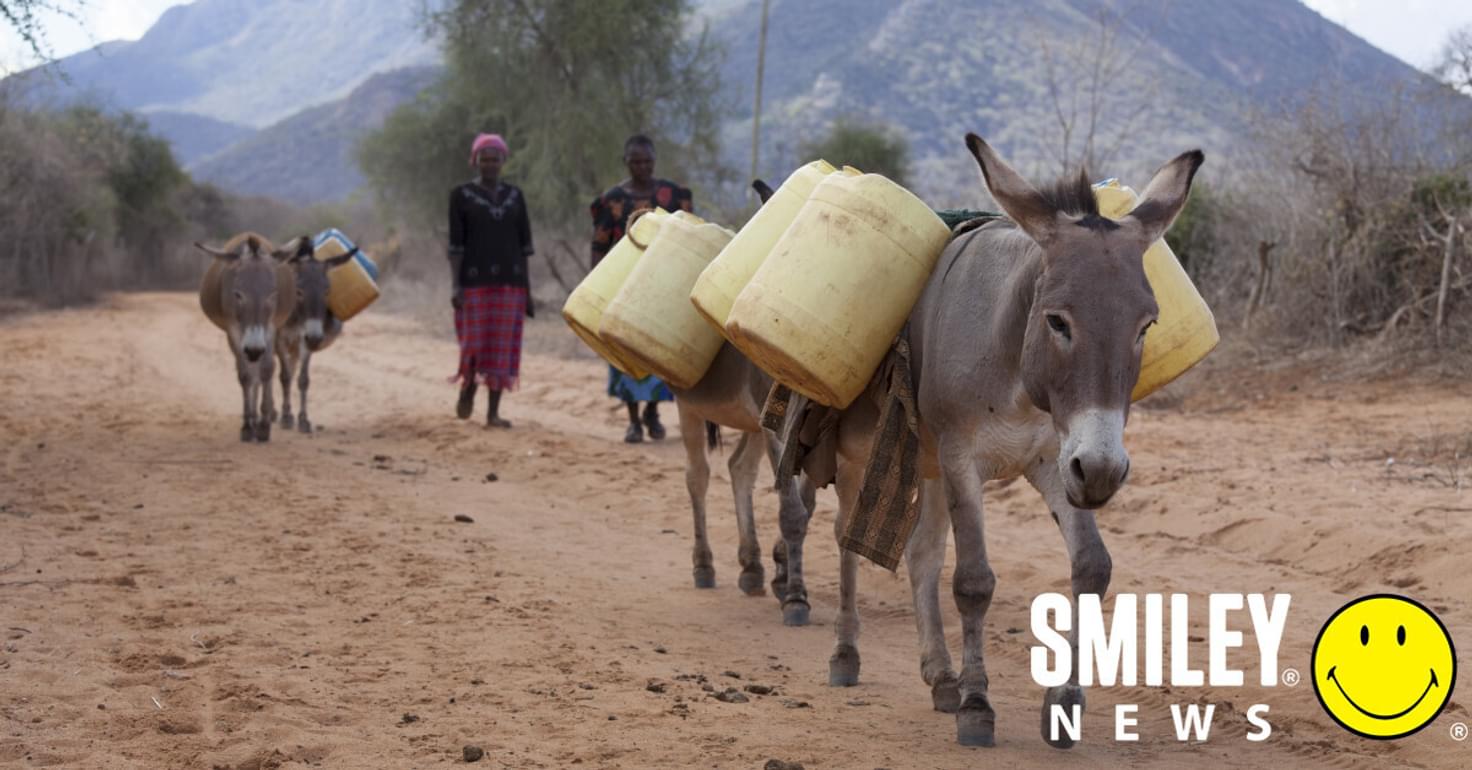
Words by Smiley Team
Owning a donkey means access to clean, fresh water for some of the most vulnerable people in the world, particularly those in remote areas in lower to middle income countries.
“Up to 200 million hours per day are spent collecting clean water around the world,” explains a spokesperson from The Donkey Sanctuary. “The simple act of a donkey carrying water greatly reduces the time required to access it and eases the physical demands of collection.
“As agile and resilient animals, donkeys can traverse difficult terrain and travel long distances to reach otherwise inaccessible water sources.”
[Read More: Italian water dogs are trained as lifeguards]
The vast majority of the estimated 50 million donkeys and mules around the world are working animals, and they are essential to the livelihoods of some of the most vulnerable communities. In places like Namibia, Lamu, Somaliland and Ethiopia, donkeys are used to collect water for entire communities, she says. A donkey will often collect 40–60 litres of water at one time.
“The simple act of a donkey carrying water reduces the time required to access it, freeing children to get an education and women to be economically active,” says the spokesperson.
In rural areas, the traditional beast of burden is often used in farming and transportation: pulling ploughs and carts, delivering goods to market, as well as collecting water from wells. In urban areas, they are mainly used in construction and transportation of people and goods.
“Water is an essential commodity,” adds the spokesperson. “Access to clean, fresh water is essential to human and animal life.
“As agile and resilient pack animals, donkeys are well suited to collecting water from otherwise inaccessible areas. Donkeys and mules were able to collect and deliver clean water and supplies after the 2015 earthquake in Nepal, for example. The earthquake flattened entire villages, consisting of low-cost informal buildings that stood little chance of withstanding the devastating impact. It also cut off mountain communities when roads became hazhardous or impassable for motorised vehicles.”
[Read More: These dogs protect wildlife and wind turbine farms]
More recently, donkeys have been helping rural communities in Africa during the global Covid-19 pandemic. With funding from The Donkey Sanctuary and using local donkeys, the Meru Animal Welfare Organisation (MAWO) installed and filled water and soap dispensaries in medical centres across northern Tanzania to combat the spread of the disease. Local donkeys were crucial to move the large quantities of water needed to fill containers, which patients used to wash their hands before seeing a doctor.
Valentina Riva, advocacy manager at The Donkey Sanctuary said: “The Donkey Sanctuary is an international organisation designing and delivering programmes, which integrate donkey welfare into international development issues. Donkeys are essential to the resource-poor communities in which they live and work: owning a donkey means access to water and markets, health facilities, education and enable participation in saving schemes.
“Through a range of measures, including advocacy at United Nations’ level, we build knowledge and improve global understanding of the crucial role donkeys play in the livelihoods of those who depend on them. We work to showcase the invaluable contribution these animals make and we encourage and ensure fundamental change in behaviours, policies and legislation reflecting the socio-economic important of donkeys in delivering for sustainable development.”
For more information about the Donkey Sanctuary
To support the charity via its weekly lottery, click here.